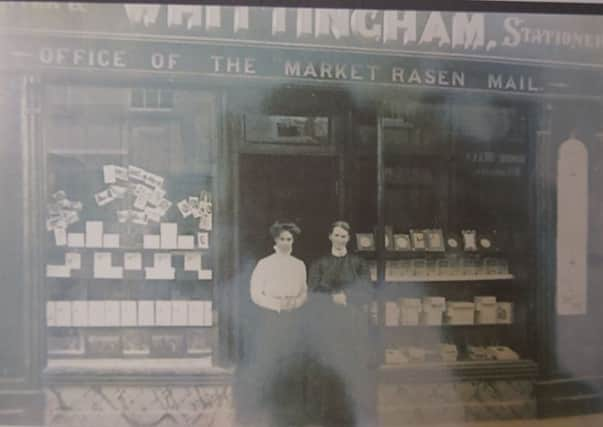A look back as the Market Rasen Mail marks 160 years of providing town with news


Through two World Wars and five monarchs, the pages have been filled with articles and information keeping readers up to date with what is happening in this area, and in the early days across the nation and even the world.
We take this opportunity to look back at the paper’s history...
Advertisement
Advertisement
In the year 1856, the Crimean War ended, the Victoria Cross was instituted, Livingstone returned to England - and, on September 20, the first edition of the Market Rasen Mail was published.


Priced at one penny, that first issue was jam-packed full of news and adverts from local traders eager to make use of the town’s new weekly paper.
Adverts for dispensing chemists, harmonium tuners, family grocers and umbrella makers rubbed shoulders with testimonies from locals who had been helped by such miraculous cures as Page Woodcock’s Wind Pills - the relief he experienced was ‘most wonderful’.
The front page was dominated by reports on the upcoming races at Market Rasen, with other news including a disgraceful scene in Caistor, sheep stealing at Binbrook, improvements at the gas works and local potato crops being threatened with disease.
Advertisement
Advertisement
It would be this mix of information, agricultural news and good local stories that would sustain the Rasen Mail through the years.


The Market Rasen Weekly Mail and Lincolnshire Advertiser was founded by Walesby farmer Richard Hackett, who also ran the business of printer, engraver, bookseller and paper-hanger in Waterloo Street.
In the days before wireless and television, the weekly paper was a source of information and entertainment.
Pre-printed general interest pages were sent by train from London for insertion in the Mail. These included national and international news, together with serialised books, handy hints for young ladies and advice on poultry-keeping.
Advertisement
Advertisement
In 1870, Hackett sold out to Thomas Hulme Whittingham, an outspoken man who would nowadays fall foul of libel laws, but who was at that time a delight to his readers.


In 1905, Thomas Benson Baty came from the north to take up the post of editor and in 1915 he was admitted into partnership - Whittingham & Baty Ltd was born.
A few years later, in 1918, a young Tealby man was to become involved with the paper, an association which further down the line was to have a monumental effect.
Charles Edward (Teddy) Sharpe became a typesetter at the Mail, a job he said, in later years, gave him literally a feel for English.
Advertisement
Advertisement
However, he was not content just to set other people’s words and soon dabbled in reporting, returning to the Mail office to set his own copy.


He became a full time freelance reporter, supplying regional and national papers with news from the Rasen area.
In 1947, Whittingham & Baty Ltd, including the Mail, went up for sale and Teddy Sharpe took the opportunity to buy the business that set him on his journalistic path.
Mechanised typesetting had been inexistence for 50 years, but not at the Mail offices in Waterloo Street, where every letter, space and punctuation was still being set by hand by compositors sitting at typecases on one-legged stools.
Advertisement
Advertisement
Teddy was not technically minded, but fully appreciated the need for technology and did much to modernise the Mail’s production equipment.
When, just over 10 years later, Teddy Sharpe heard the Horncastle News and W K Morton & Sons was up for sale, he took the opportunity to buy this concern too.
Printing of both papers then moved to Horncastle, later to be joined by the Louth Leader and other newspapers which would join the Lincolnshire Independent Newspapers group.


As the years advanced, Teddy handed over the day to day running of the Rasen Mail, but remained a regular contributor of historical articles, almost until his death at the age of 80 in 1983.
In 2001, the Mortons newspapers were bought by Johnston Press, who remain the owners and are taking the papers on into the digital age.